What are metal spoons made of?
Ever stirred your coffee and wondered what your spoon is actually made of? You assume it's safe and durable, but some metals can tarnish, bend, or even react with your food.
Most modern spoons are made from stainless steel alloys, typically 18/10 or 18/8. Luxury spoons can be sterling silver or silver-plated, while budget or camping spoons are often aluminum. High-end outdoor gear might use titanium for its strength and light weight.
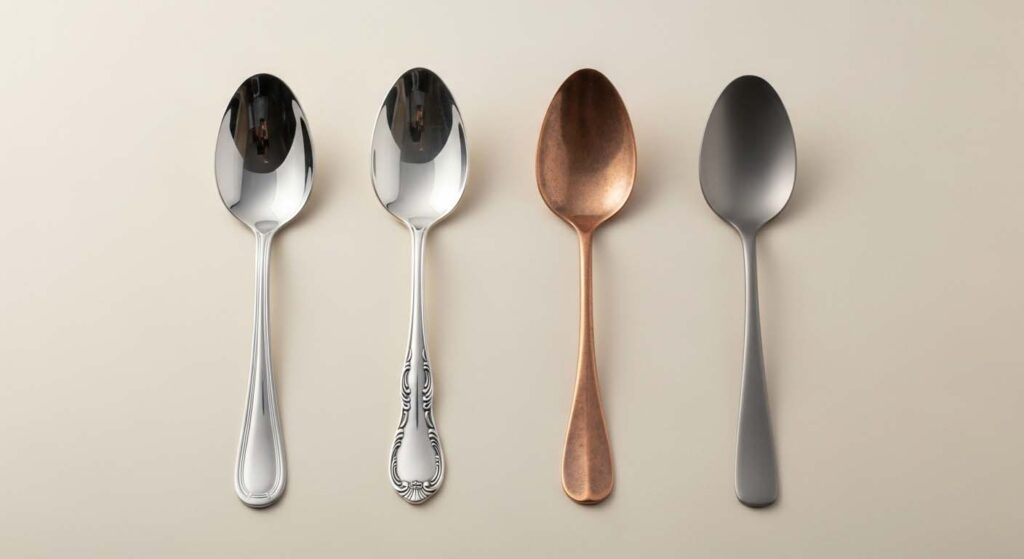
In my factory, we handle tons of raw metal every day, and the choice of material is the most fundamental decision in making a great spoon. It dictates everything from the spoon's brilliant shine to how it feels in your hand and how long it will last. When a professional buyer like Jacky evaluates a new line, the first thing he asks about is the grade of the steel. Understanding these materials is the key to knowing what you're really paying for.
What is the best metal for spoons?
You want spoons that are beautiful, safe, and will last a lifetime. With options from silver to steel, you worry about choosing a material that will tarnish or feel cheap.
For the best combination of everyday durability, beauty, and safety, 18/10 stainless steel is the superior metal for spoons. It offers excellent rust resistance and a brilliant shine without the high maintenance of silver.
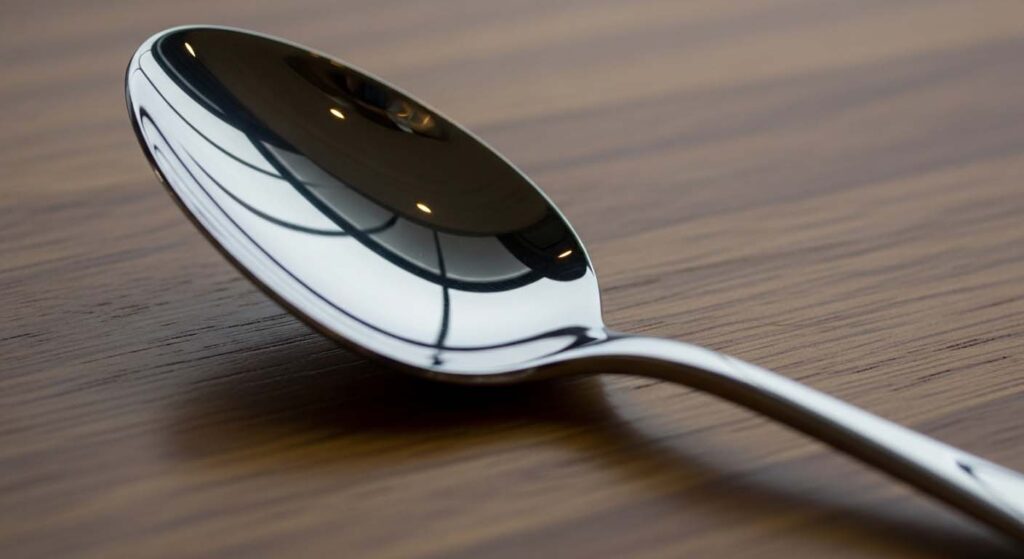
When clients ask me for a "no-compromise" material for daily use, I always point them to 18/10 stainless steel1. While other metals have their place, stainless steel hits the sweet spot for what most people need. Let's compare the top contenders.
Material Showdown
- Sterling Silver: This is the classic luxury choice. It has a beautiful warmth and is a status symbol. However, it's very soft, scratches easily, and tarnishes when exposed to air and certain foods. It requires constant polishing to look its best. It's fantastic for formal dining but impractical for daily use.
- Titanium2: This is an amazing metal. It's incredibly strong, lightweight, and completely corrosion-proof. It's a popular choice for high-end camping gear. The main drawbacks are its cost—it's significantly more expensive to produce—and it often has a duller, more industrial look compared to polished steel.
- 18/10 Stainless Steel: This is the hero of the modern kitchen. It's strong, resists scratches and bending, and thanks to its 18% chromium and 10% nickel content, it's highly resistant to rust and has a beautiful, silver-like shine. It's the material I recommend to brands that want to offer their customers long-lasting quality without the hassle.
| Metal | Durability | Maintenance | Cost | Best For |
|---|---|---|---|---|
| 18/10 Stainless Steel | Excellent | Very Low | Moderate | Everyday Use & Fine Dining |
| Sterling Silver | Low | High | Very High | Formal Occasions |
| Titanium | Highest | Very Low | High | High-End Camping/Outdoor |
What are the benefits of stainless steel spoons?
You see "stainless steel" on so many products that it can seem ordinary. You wonder if it’s just the cheapest option or if it has real, tangible benefits for your family.
The main benefits of stainless steel spoons are exceptional durability, high resistance to rust and corrosion, non-reactivity with food, being dishwasher-safe for easy cleaning, and providing incredible value.
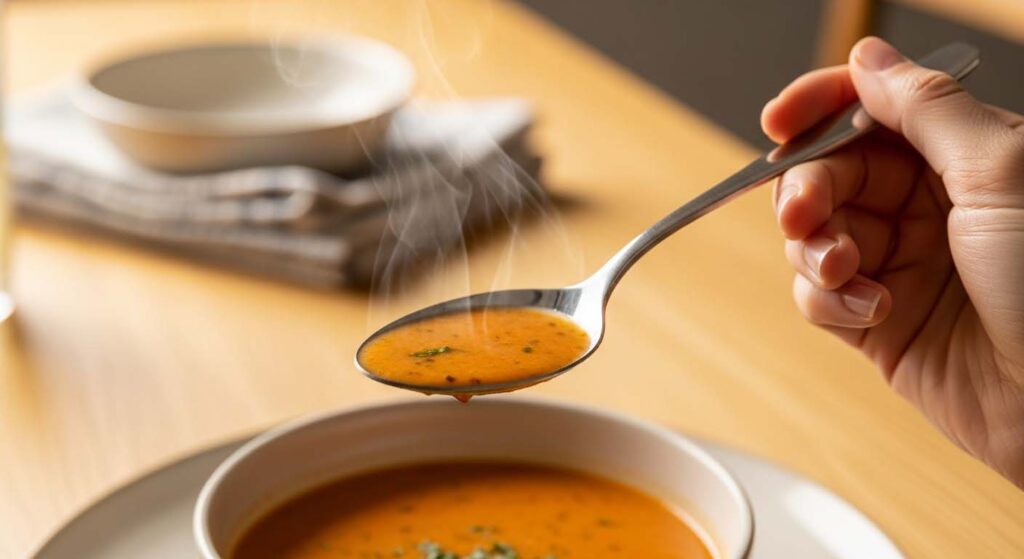
Stainless steel isn't just the default choice; it's the smart choice. Its properties make it perfectly suited for daily contact with food and the rigors of a modern kitchen. In my factory, we rely on these benefits to produce cutlery that we can stand behind with confidence.
The Unseen Advantages
- Corrosion Resistance: The "stainless" quality comes from the chromium in the alloy. It forms an invisible, passive layer of chromium oxide on the surface. This layer instantly reforms if it gets scratched, providing constant protection against rust and staining from acidic foods like tomatoes or lemon juice.
- Hygienic and Safe: Stainless steel is non-porous. This means there are no tiny holes for bacteria or germs to hide in. It doesn't absorb flavors or odors, so your spoon won't taste like last night's curry when you eat your cereal. This is why it’s the universal standard for professional kitchens and medical equipment.
- Strength and Durability: Quality stainless steel spoons resist bending, even when you're scooping rock-hard ice cream. They don't chip or crack, and they stand up to the high heat and harsh detergents of a dishwasher cycle year after year.
What are the disadvantages of metal spoons?
You love the solid feel of a metal spoon, but you've heard they can leave a metallic taste or scratch your favorite non-stick pots. You are concerned about any potential downsides.
The main disadvantages vary by metal. Some metals like silver tarnish easily, cheap aluminum can bend and react with food, and all metal spoons can scratch delicate surfaces and conduct heat quickly.
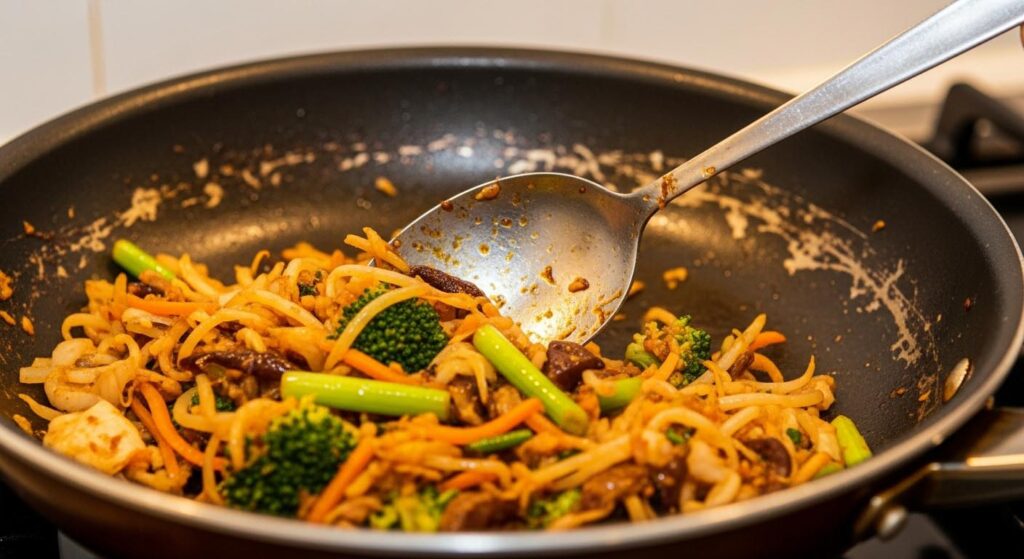
While metal spoons are fantastic overall, it's important to be aware of their limitations, which usually depend on the specific metal used. As a manufacturer, I believe in being transparent about these trade-offs so customers can choose wisely.
Potential Drawbacks to Consider
- Heat Conductivity3: This is a universal trait of metal. If you leave a metal spoon in a hot soup or coffee, the handle will get hot. It’s simple physics and something to be mindful of.
- Scratching Surfaces: A hard stainless steel spoon can easily scratch the delicate surface of a non-stick pan or a very soft ceramic bowl. It's always best to use wooden or silicone utensils for cooking in non-stick cookware.
- Tarnishing (Silver): The biggest disadvantage of sterling silver or silver-plated spoons is tarnishing. They react with sulfur in the air and in foods (like eggs), forming a dark layer of silver sulfide that needs to be polished off regularly.
- Metallic Taste (Aluminum/Copper): Cheaper, more reactive metals like aluminum can sometimes impart a metallic taste, especially with acidic foods. This is why they are not preferred for high-quality flatware. Quality stainless steel, however, is non-reactive and does not cause this issue.
What causes stainless steel spoons to turn black?
You pull a perfectly good stainless steel spoon from the dishwasher, only to find strange, dark spots on it. You worry that the spoon is low quality or permanently ruined.
Stainless steel spoons can turn black due to a surface reaction with sulfur compounds found in some foods, harsh dishwasher detergents, or prolonged contact with other metals like silver or aluminum in a wet environment.
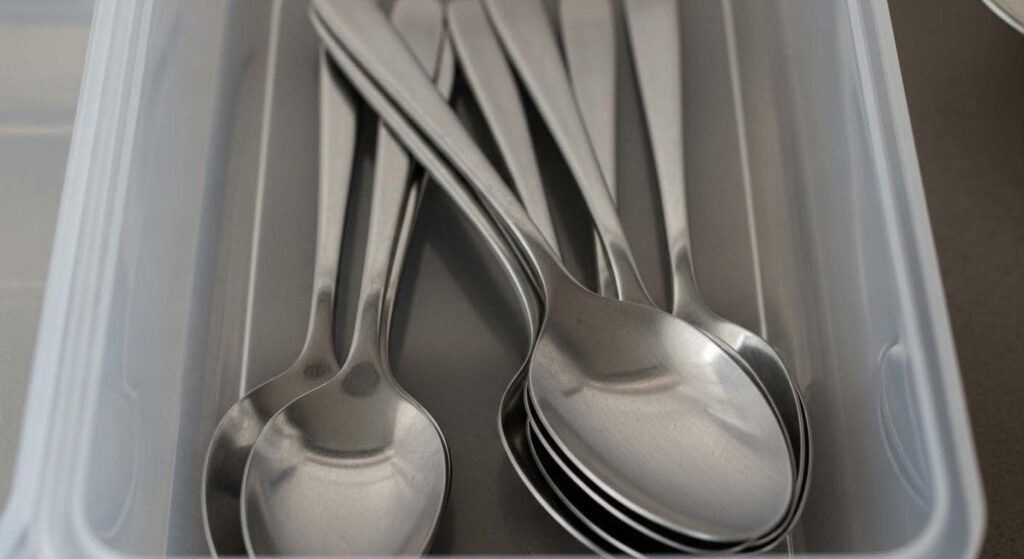
This is a common concern, but the good news is that the spoon is almost never ruined. This blackening is a surface film, not a deep corrosion of the metal itself. I've seen it happen even with the highest-grade 18/10 steel under specific conditions. It's a chemical reaction taking place on the protective layer of the spoon.
The Main Causes
- Chemical Reaction with Food: The most common culprit is sulfur. Foods like eggs, onions, and mayonnaise contain sulfur compounds. When these are left on a spoon, especially in the heat of a dishwasher, they can react with the chromium oxide layer and create a dark film.
- Harsh Detergents: Some aggressive dishwasher detergents, especially those with high levels of chlorine bleach, can be harsh on stainless steel over time and contribute to discoloration.
- Contact with Other Metals: This is called galvanic corrosion. If your stainless steel spoon is in direct contact with a silver or aluminum item in the wet, salty environment of a dishwasher, a small electrical current can be created, causing the steel to tarnish where it touches the other metal.
The fix is usually simple. Make a thick paste of baking soda and water, and gently rub the black spots with a soft cloth. They should disappear, revealing the shiny, undamaged steel underneath.
Conclusion
Spoons are made from many metals, but stainless steel offers the best balance of safety, durability, and beauty for daily life, making it the industry's top choice.
-
Explore this link to understand why 18/10 stainless steel is the top choice for durability and daily use. ↩
-
Explore this link to understand titanium's unique properties and its applications across different industries, enhancing your knowledge. ↩
-
Understanding heat conductivity in metals is essential for practical applications in cooking and engineering. ↩
